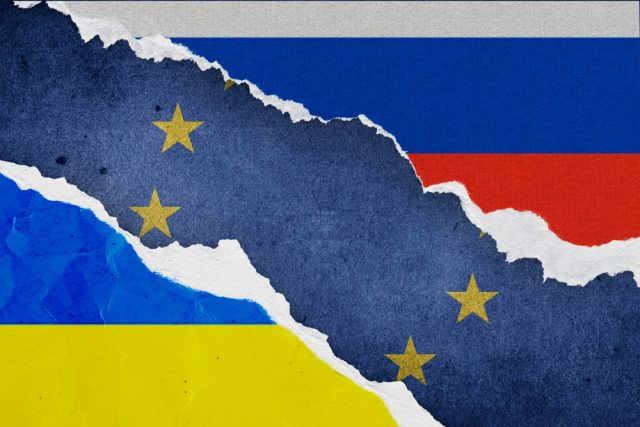
“Freedom is never free. It is a right that must be defended with courage and determination.” These were the words of the president of the G7, Giorgia Meloni, during yesterday’s meeting in Kyiv, renewing support for the Ukrainian cause.
Two years after the start of the Russian-Ukrainian conflict, the Italian Prime Minister, Giorgia Meloni, wanted to organize one of the first G7 meetings under the Italian Presidency in Kyiv. A place full of meaning, for Europe but also the whole world. Scenarios of the devastation of a war that still today, since February 24, 2022, continue to see two worlds opposing one another: on the one hand, the free world, which fights to defend respect for international law and freedom, on the other hand, those who would overwhelm the weaker by force.
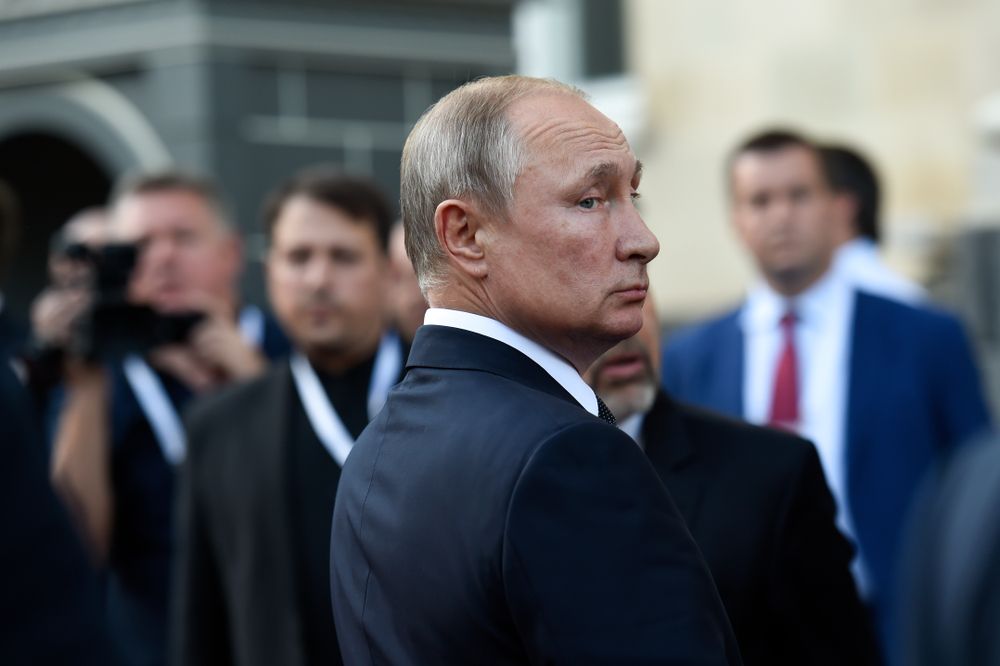
It was February 24, 2022, when Russian President Vladimir Putin announced the start of what he attempted to call a “special military operation” in Ukraine, which was instead a real large-scale invasion of Ukrainian territory. An event that inevitably marked a turning point in international politics. A few weeks passed before the Ukrainian people began their counteroffensive against Russia. An “operation” which, according to the Kremlin’s forecasts – or perhaps intentions – should have ended in a short time, a blitzkrieg. However, the latter hypothesis vanished within a few days.
The socio-political and economic implications of this conflict have had a disruptive impact not only on Ukraine but also on Italy and the entire European Union. Ukraine, a nation that is fighting for its freedom, dignity, and sovereignty, has suffered the most direct consequences of the conflict. A war that has entailed and is entailing an enormous cost, both in terms of human lives (It is not easy to verify the estimates that arrive on the number of those killed in the conflict which can vary significantly depending on the sources. According to recent reports from the Wall Street Journal and the New York Times, based on assessments carried out by American intelligence, it could be estimated that around 315 thousand Russian soldiers were injured or killed since the beginning of the invasion; on the Ukrainian front, however, American General Mark Milley estimates the number killed of approximately 100 thousand Ukrainian soldiers and 40 thousand civilians involved in the conflict) and on a social but also economic level. On this last aspect, Ukraine, already in a particularly fragile condition, has recorded a further weakening. However, the resistance of the Ukrainian people demonstrated to the world the strength of their determination and love for freedom and their land.
The role of President Zelensky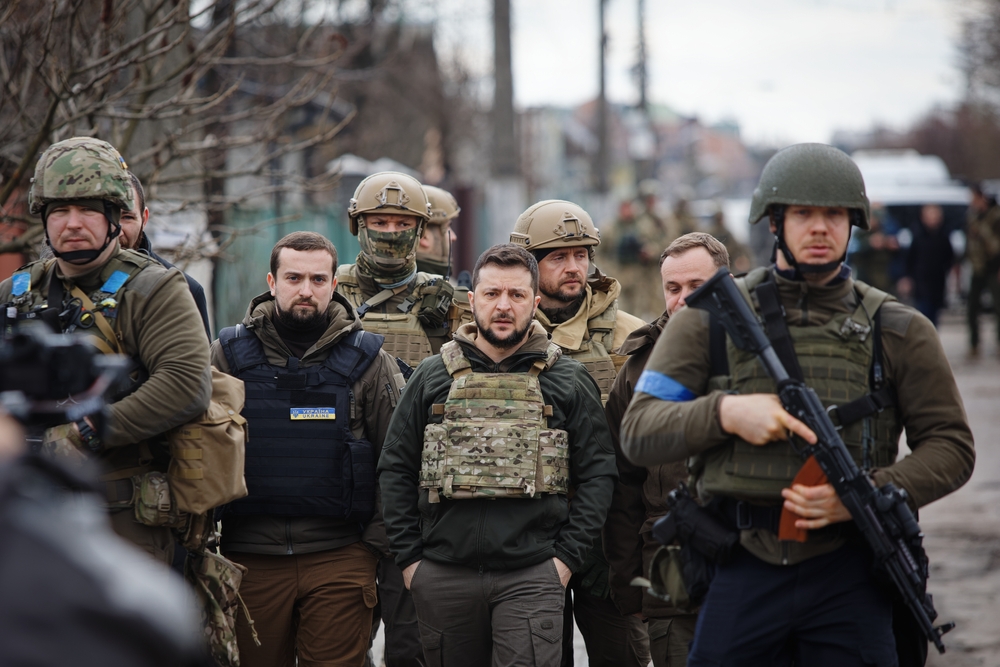
In these two years of war, Ukrainian President Volodymyr Zelensky has played a crucial role which has allowed his nation to be present and protagonist on the main international contexts in the presence and alongside the greatest world powers. Certainly, there were many difficulties encountered during this period but President Zelensky continued with determination to support his cause and lead the Ukrainian people.
The international response: EU and USA
A cause that immediately found a strong ally in the Western community. In particular, the United States of America and the European Union played a fundamental role in supporting the Ukrainian people during this conflict. According to the Kiel Institute for the World Economy, the United States has already provided 71 billion dollars in support to Ukraine, while the states belonging to the European Union have provided over 60 billion dollars. A support that materialized not only in mere economic terms but also through the invitation of military aid. The European Union in particular has intensified its political, humanitarian, and financial support with an eye toward the future, with the reconstruction of the Ukrainian territory and the social fabric as soon as the conflict ends. Just in the last month, the European Council reached an agreement on the 50 billion fund to finance Ukraine over the next 4 years. It was President Charles Michel who made the announcement shortly after the start of the Council.
Sanctions on Russia
At the same time as direct support for Ukraine, the European Union imposed heavy sanctions on Russia, aimed at limiting trade and reducing the supply of resources and raw materials to Russia, with the clear intent of undermining the economic stability of the country and thus compromise the Kremlin’s war plans. However, as expected, the economic repercussions were also tangible for many European nations. Italy, among others, was largely dependent on Russian natural gas, leading to an inevitable dramatic growth in energy supply costs. In short, the conflict has presented European governments with a significant challenge: balancing energy needs with the fundamental importance of supporting and backing Ukraine in the face of the Russian oppressor and invader.
The current context: resistance and looking to the future
After two years of conflict, the situation in Ukraine remains tense as the Ukrainian people continue to resist, with broad international support behind them. Precisely to keep the spotlight on and to confirm this support yesterday, the second anniversary of the attack, the G7 leaders met in Kyiv, under the Italian presidency.
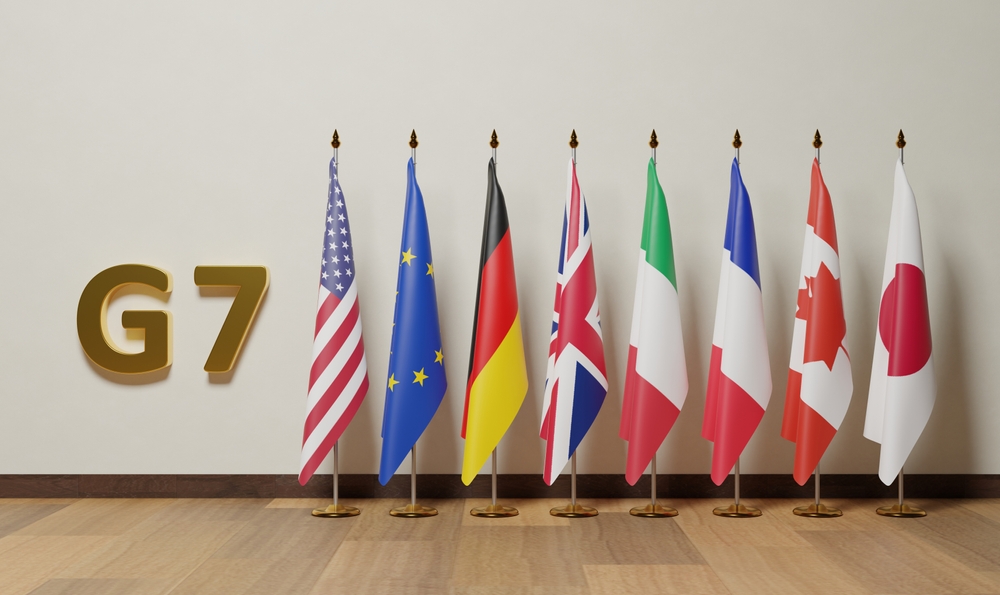 The G7 summit
The G7 summit
The meeting, chaired by President Meloni, saw the participation of the President of the European Commission Ursula von der Leyen, the Canadian Prime Minister Justin Trudeau, the Belgian Prime Minister Alexander De Croo, who holds the rotating presidency of the EU Council, as well as Biden, President of the United States of America, Sunak, British Prime Minister, Scholz, Federal Chancellor of Germany, and Kishida, Japanese Prime Minister. Only the French President Emmanuel Macron was absent, busy with a “difficult day” – as President Meloni described, ensuring his absence was justified and communicated in advance.
Bilateral agreement Italy – Ukraine
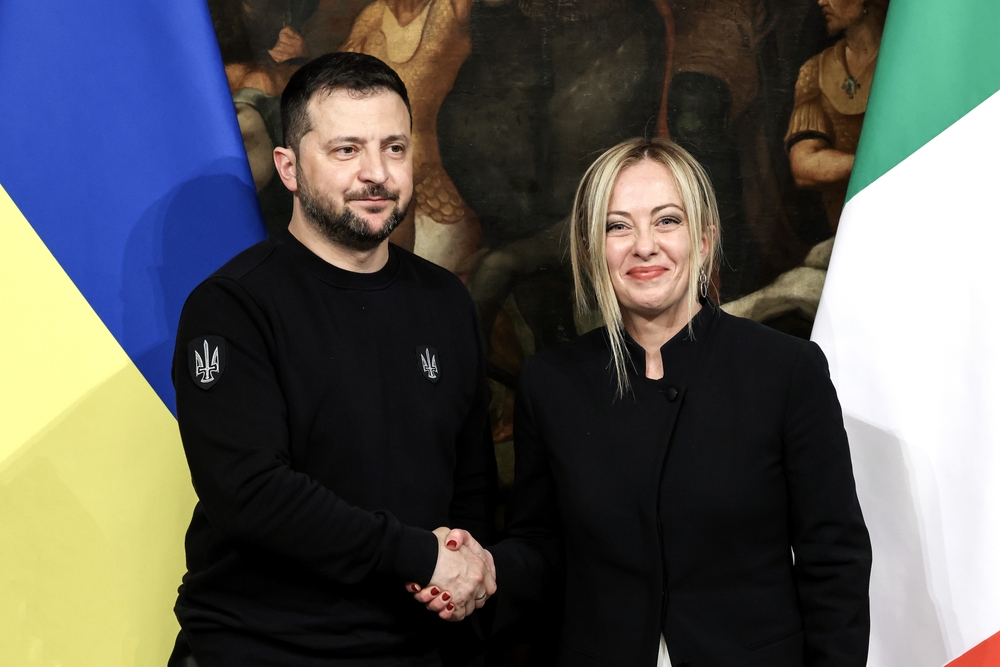
During the summit, President Zelensky and Italian President Giorgia Meloni signed a bilateral security cooperation agreement between the two Nations. The deputy prime minister and foreign minister Antonio Tajani (FI) had already announced it during his adoption to the joint Foreign and Defense Commissions of the Italian Parliament: “I considered it important and urgent to report to you about the negotiations with the Ukrainian authorities to sign a bilateral cooperation agreement of security, which the Prime Minister is preparing to sign. I consider it my duty to anticipate to Parliament the contents and qualifying aspects of the ongoing discussions, which we hope to be able to bring to fruition in the next few days”.
However, no commitments or obligations will arise from the agreement at the level of international or financial law, therefore no parliamentary ratification will be necessary. An agreement, the one between Italy and Ukraine, affirms and establishes a solid basis for a long-term partnership focused on multiple points and objectives. From military to economic and military collaboration; from strengthening security to cooperation in cyber and intelligence matters; from commitment to humanitarian support and reconstruction to cooperation aimed at ensuring food and energy security for Ukraine.
The conclusions of the Summit
Zelensky hopes that “2024 will be the decisive year for long-term security” while the G7 leaders in the conclusions declare “We call on Russia to immediately and completely cease its war of aggression and unconditionally withdraw its military forces from the recognized territory internationally as belonging to Ukraine”. The objective is to achieve a “global, just and lasting peace, consistent with the principles of the United Nations Charter and international law and respectful of the sovereignty and territory of Ukraine”.
A moment of significant solidarity in which all the leaders reaffirmed their “unwavering support for Ukraine”, with the 50 billion from the EU, the intervention of Japan in support of the Ukrainian public budget, the new funding from Canada, and the collective commitment to support the Ukrainian economy and fill the remaining national budget gap for 2024.
And as the war continues, the world looks with hope toward a resolution to the conflict.



 Subscribe
Subscribe